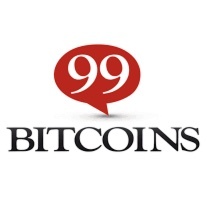Tether Reclassifies USDT on Older Networks as “Unsupported”
0
0
Tether is making a change to how it handles USDT on some of the older blockchains it once supported. Instead of freezing these tokens, the company is marking them as “unsupported.” This applies to networks like Omni Layer, Bitcoin Cash SLP, Kusama, EOS, and Algorand.
Transfers Will Still Work
If you’re holding USDT on any of these chains, you can still send and receive them. What’s ending is the ability to mint new tokens or redeem them directly with Tether. The reclassification keeps those older tokens functional while allowing Tether to focus on chains that are more widely used today.

Community Feedback Played a Role
The update wasn’t made in a vacuum. Tether noted that it listened to feedback from developers and users active on these older networks. Rather than cutting access entirely, this change lets people continue using the tokens if they want, without expecting Tether to keep full support going forward.
DISCOVER: 9+ Best High-Risk, High-Reward Crypto to Buy in August2025
Tether Refocusing on High-Utility Chains
This decision is part of a bigger push toward active networks that serve large user bases and support growing ecosystems. Ethereum and Tron are top priorities, alongside newer Layer 2 networks that are gaining serious traction. This lets Tether concentrate its efforts where USDT is seeing the most demand.
USDT Coming to Bitcoin via RGB
At the same time, Tether is expanding its reach. The company plans to launch a native version of USDT on Bitcoin using RGB, a smart contract protocol built around Bitcoin’s infrastructure. This means users will be able to interact with USDT directly on Bitcoin, without needing bridges or third-party chains.
Keeping Things Simple Internally
Tether has maintained a long list of supported chains over the years. Some of them have had very low usage, which added unnecessary overhead. By trimming down and focusing on chains that see more activity, Tether simplifies how it manages USDT behind the scenes.
DISCOVER: Next 1000X Crypto: 10+ Crypto Tokens That Can Hit 1000x in 2025
Holders Can Still Migrate
For users who want to move their USDT to a fully supported chain, tools already exist to do so. Many wallets and exchanges allow for cross-chain swaps or redemptions. There’s no rush to migrate, but the option is open for those who want to take advantage of more features on active networks.
DeFi and Integration Goals
The update also reflects where the stablecoin world is heading. Most of today’s DeFi activity lives on just a few blockchains, and Tether is aligning its footprint accordingly. Concentrating liquidity in those places helps DeFi tools, dApps, and protocols integrate USDT more easily.
What Happens Now
From here on, the networks listed as unsupported won’t get updates, redemptions, or new token issuance from Tether. Wallet transfers still work as usual. For users looking ahead, the Bitcoin RGB launch could be the next major evolution for USDT, connecting the stablecoin to the largest and oldest blockchain in a direct way.
DISCOVER: 20+ Next Crypto to Explode in 2025
Join The 99Bitcoins News Discord Here For The Latest Market Updates
Key Takeaways
- Tether has reclassified USDT on older chains like Omni, EOS, and Algorand as “unsupported” rather than freezing them.
- Users can still transfer USDT on these chains, but minting and redemptions with Tether are no longer available.
- The move is based on low usage and community feedback, allowing Tether to refocus on high-demand chains like Ethereum, Tron, and Bitcoin via RGB.
- Tether plans to launch native USDT on Bitcoin using RGB, offering direct stablecoin support without bridges.
- Users can still migrate their USDT to active networks using cross-chain tools supported by wallets and exchanges.
The post Tether Reclassifies USDT on Older Networks as “Unsupported” appeared first on 99Bitcoins.
0
0
 Manage all your crypto, NFT and DeFi from one place
Manage all your crypto, NFT and DeFi from one placeSecurely connect the portfolio you’re using to start.






